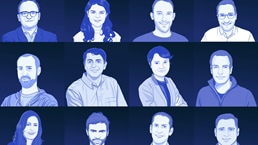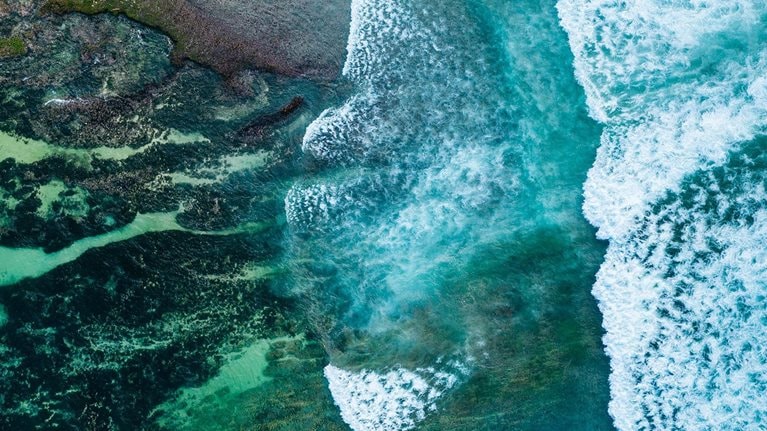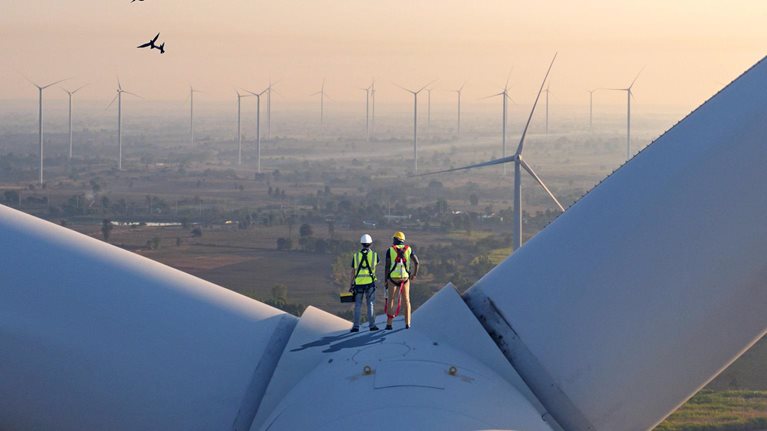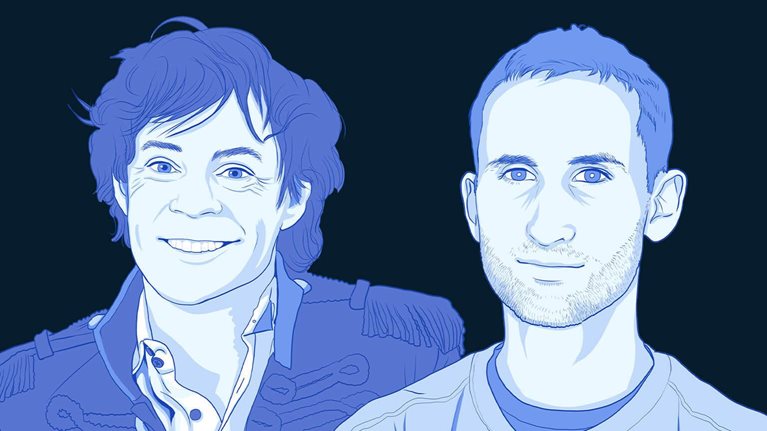The global capital intake for venture capitalist (VC) firms has decreased significantly, dropping $200 billion from 2021 to 2022, with an additional decline of $50 billion expected in 2023.1 Despite the overall shrinking market, impact investments have proven resilient, thanks to growing consumer demand for sustainable products and services. The demand has also created new opportunities for VCs to drive impact investments. AENU, an impact VC firm, uses a unique fund model to attract investors, start-ups, and employees. Its mission is to drive a systemic change in VCs that benefits all stakeholders, including society and the environment.
In a conversation with McKinsey’s Markus Berger-de León and Jerome Königsfeld, AENU CEO and cofounder Fabian Heilemann explains how the company uses a comprehensive ecosystem solution informed by education and technology to change consumer behavior and fight climate change. Heilemann also emphasizes that successful business building requires radical prioritization and that VCs must give social impact and financial return equal weight to enable fundamental change in the economy.
Jerome Königsfeld: You’ve built several successful businesses with your brother, including the logistics unicorn Forto. Can you tell us about your journey as a serial entrepreneur?
Fabian Heilemann: In 2007, my brother, Ferry, and I committed ourselves to becoming tech entrepreneurs—without money, knowledge, or a network. After a few early tryouts without significant funding, we founded our first successful company, DailyDeal. DailyDeal was a voucher platform that helped companies bridge the online and offline customer experience. We raised funding through Insight Partners and sold the company to Google in 2011 for more than €100 million.
Following the sale of DailyDeal, I invested in start-ups and grew my venture capital toolkit, knowledge, and skills in the field. Within three years, I had invested in more than 20 companies, several of which became successful exits. Simultaneously, Ferry and I remained active business builders. At our peak, we were leading five companies. It was at that point that we realized our current setup had become unsustainable due to a lack of focus. So we made the decision to radically prioritize our efforts. We put all our efforts into creating only one business, with Ferry as CEO, while I advised and worked full-time as a VC. We started from scratch with a template to assess the feasibility and impact potential of new business ideas, and in 2016 we founded Forto together with two other cofounders. By concentrating all our capabilities on one business, Forto became a logistics unicorn. Our two cofounders, Michael Wax and Erik Muttersbach, lead the company’s operations today and continue to offer enterprise customers global transport services with our supply chain–management software.
Markus Berger-de León: What drove you to invest in impact-focused businesses?
Fabian Heilemann: After all of our experiences and investments for which success was measured by commercial KPIs, Ferry and I started to question conventional capitalism. After reading books like Al Gore’s An Inconvenient Truth, we recognized that humanity is at the precipice of an emerging climate catastrophe, and we started to think about how we could contribute to changing it through our personal choices and our businesses.
We came up with three steps. First, we changed our lifestyle to reduce our carbon footprint, such as by buying an electric vehicle, using a cargo bike, limiting flights, and becoming vegetarians. Next, we transferred our mission to the companies at which we worked. While advising Forto, I also worked full-time as a general partner for Earlybird Venture Capital, where I built its climate-tech practice and helped the firm to scale from €700 million to €2 billion in assets under management. At both Forto and Earlybird, we implemented measures to reduce our footprint, such as using greener transportation methods, tapping renewable energy for offices, and offsetting emissions. Last, we made environmental, social, and governance (ESG) criteria core to our private investments.
Jerome Königsfeld: When did you decide to build your own impact VC?
Fabian Heilemann: After becoming more sustainable in our personal and professional lives, we wanted to go even further, from a circle of control to a circle of influence. In 2019, we founded the nongovernmental organization (NGO) Leaders for Climate Action (LFCA) with other entrepreneurs. This initiative helps organizations of all sizes to set and audit targets to accelerate a transition to a net-zero future. The initiative has grown to more than 700 companies, becoming one of the leading climate activist communities in the Western world. Inspired by the collective knowledge of LFCA, Ferry wrote the book Climate Action Guide, with checklists and actions to help companies become more sustainable.
In 2021, Ferry and I realized that it had become increasingly difficult for us to reconcile the classic economic objectives used in our daily work with our newly formed personal beliefs. This is why we finally decided to step down from our operational duties to work full-time on creating the AENU era of impact venture capitalism.

Learn to Leap interviews
Jerome Königsfeld: How do you differentiate yourself from other impact funds?
Fabian Heilemann: We have four key drivers of portfolio value creation that define our appeal to entrepreneurs. These are directly derived from and interlocked with the track record and DNA of our team and therefore hard for competitors to replicate.
The first key driver is our entrepreneurial experience combined with our experience as VC investors and as an impact activist. Second is our profound impact know-how and thesis-driven domain expertise. We are conducting six to eight deep dives per year in certain areas and sectors that refine the firm’s specific investment thesis and allow for outbound deal sourcing. Entrepreneurs in these sectors appreciate the profound domain expertise that we build in their field, taking it as a proxy for high conviction and increased value add. Third is our B2B market access, especially in the DACH region, which we have built for many years. And last is the capital formation within our strong international Tier A VC investor network.
The value add is further productized with the AENU Resource Hub, which makes relevant tools, frameworks, benchmarks, and contact books available to the management teams of AENU’s portfolio companies.
Markus Berger-de León: What are the key decision criteria for your investments?
Fabian Heilemann: We focus on seed and Series A investments and look at three main dimensions for our investment decision: team, technology, and market. The earlier the stage of the company, the more we invest in the team and the market opportunity. Nevertheless, the company needs a proprietary technology and, in the best-case scenario, already has some pilot customers. What makes us special is that we use this information to measure impact and financial KPIs at the same level to assess our investment opportunities. We invest only in companies that show both a high impact and high returns. To quantify the impact and compare different opportunities, we created a unique impact scoring model and calculate the impact from the bottom up for each company. On the financial side, we select only ideas for which we see the potential to generate 30 to 40 times our investment.
Jerome Königsfeld: You have a broad impact-investment portfolio that includes everything from education to technology companies. What is the reason behind it?
Fabian Heilemann: We truly believe in the Charles Eames quote that “eventually everything connects” and that the quality of those connections matters. We need a systemic solution instead of quick fixes. This is why we interact with NGOs and governments in addition to start-ups and investors, and why we have a broad portfolio. To change consumer behavior, we need education in addition to technologies. Democratizing education is key to convincing consumers, for example, to reduce their meat consumption or change their fashion buying patterns. Climate impact and education go hand in hand.
Markus Berger-de León: What are the macro trends you see for impact VCs?
Fabian Heilemann: The current situation in the general VC market, with global shrinkage especially in the e-commerce, fintech, and consumer health segments, is as challenging now as it was in 2008. However, impact investments have been more resilient and were stable over the past six quarters. The macro headwind for conventional VCs and tailwind for impact VCs will eventually lead to disproportionate growth for impact investments. Based on our analyses, we expect to reach the pivot point midyear, after which we anticipate growth in both conventional and impact investing but with impact investing growing at a much faster rate. So there will be even more money to develop and scale essential technologies that fight climate change in the future. However, these trends will also mean that companies that might not have a sustainable business model could be subsidized. So impact VCs must continue to be very diligent and set up comprehensive criteria when they assess impact start-ups.
Jerome Königsfeld: What are the growth frontiers for your fund?
Fabian Heilemann: In the short term, our focus is on three key priorities: closing eight deals this year, building up our senior leadership team, and expanding our expertise in science. We are currently looking for an investment partner in the Nordics or in the United Kingdom, where 25 percent of our portfolio companies are located, to further increase our presence within Europe. Then we plan to hire a chief scientist with extensive knowledge in ocean farming and alternative proteins, among other technology disciplines. Today, we get most of our expert knowledge from cooperation with academic institutions or incumbents, making it essential that we deepen our expertise internally to scale our impact. In the long term, our mission is to drive a systemic change in VCs that benefits all stakeholders, including society and the environment. To succeed in that mission, we need to become a catalyst for change and the leading holding company in Europe over the next three decades.


